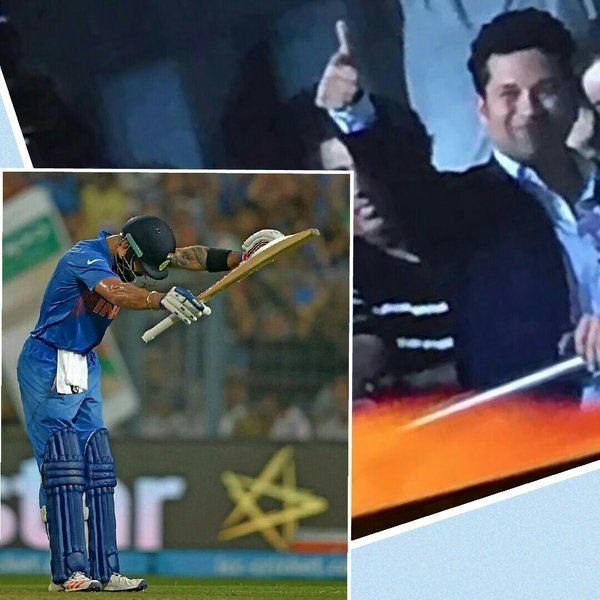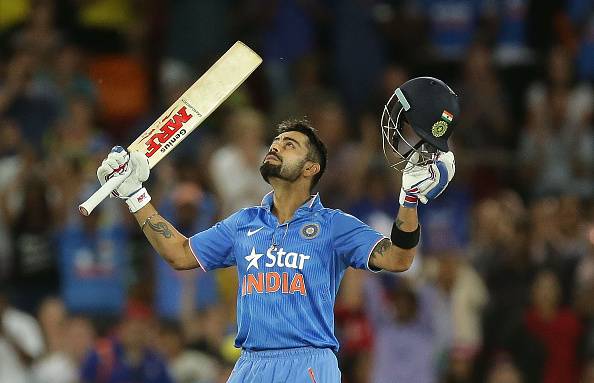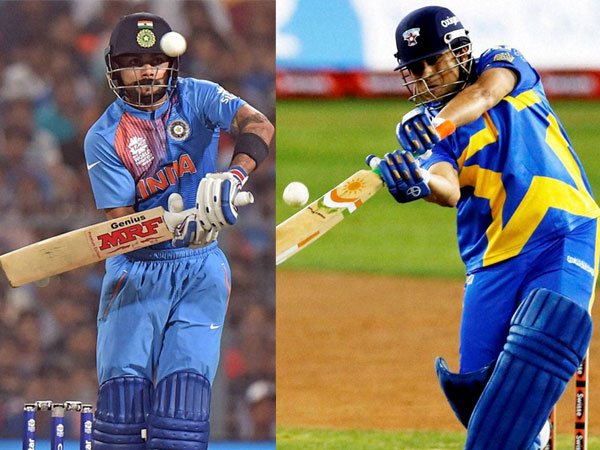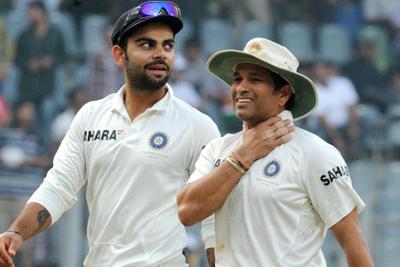Virat Kohli and Sachin Tendulkar are possibly in the news for all types of reasons nowadays. Recently, Sachin was ridiculed and the answer; #TanmayRoasted. Similarly Virat has been in news for his love affair and of course his performance. But whenever the IPL season kick starts, the media suddenly starts comparing them with each other. But can they really ever be compared?
The Legend Himself

It’s unfair to compare these two!
On one hand, there is Sachin Tendulkar, widely regarded as one of the greatest batsman of all time and titled as the ‘Master Blaster’, ‘the God of cricket’ and many other deserving superlatives.
Today’s champ

A legend in the making
On the other hand, there is our youth icon Virat Kohli and our very own Punjabi boy ‘Chiku’. He recently broke our ‘master blaster ‘s record in the ongoing T-20 IPL and is reaching new heights in his career.
Yet some similarities

Their class can be compared though
Both of them made the country proud and both are respectable personalities. Sachin joined the Indian Cricket Team at a very young age and ended up writing cricket history. Even Virat, who considers Sachin to be his idol, bowed down to him during a recent match of ICC T-20 after scoring a century. So in short, even Virat believes that Sachin will always be the God of Cricket.
The battle of the scores

It’s impossible to compare two gems
In two editions of IPL, Tendulkar scored over 500 runs – 618 in 2010 and 533 in 2011. Kohli is presently leading in the run chart with 919 run in this edition. He scored 634 in 2013 and 504 in 2014.
Though both of them faced different challenges and struggles, their aim was one – to make India proud. Both of them can’t be compared with each other as, first of all, records are meant to be broken and, secondly, they belong to different cricketing eras. It’s much easier to score runs now than it was before thanks to lesser umpiring errors, larger boundaries and more competitive matches. So while the future generation will always have an advantage over past generations, the past generations will always be ahead in experience.
Author Name: Palak Bhardwaj




